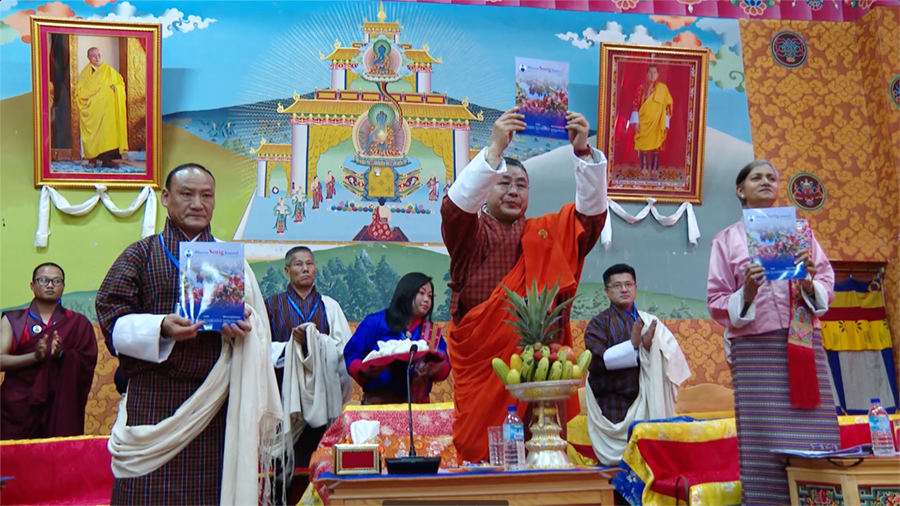
A recent study conducted by a Drungtsho or a traditional medicine doctor at the National Traditional Medicine Hospital has found that eczema, locally known as Langshu can be effectively treated using a combination of herbal purgation and application of herbal medicine pastes. The research is a part of the first Bhutan Sorig Journal launched by the Faculty of Traditional Medicine at the first National Sorig Conference. The health minister launched the journal today.
Eczema is a skin disease which includes symptoms like itching, thickening like leather and darkening of the skin.
According to the research, the purgation treatment involves giving an oral medication that induces diarrhoea, thereby flushing out the impurities which cause eczema.
Additionally, applying herbal pastes on the affected skin helps reduce the severity of eczema symptoms. This was studied by Singye Wangmo, a Drungtsho at the National Traditional Medicine Hospital.
“We treat a lot of patients with skin disease in the traditional hospital but there is no concrete report about how effective it is. Therefore, I decided to study the treatment’s effectiveness by using international standard equipment. My findings resulted in eczema being able to be treated within two to three weeks through the process of purgation and applying the herbal paste,” said Singye Wangmo.
The health ministry reported skin disorders as the second leading cause of morbidity seen across hospitals in the country and one of the top ten diseases treated at the National Traditional Medicine Hospital.
She added that eczema is believed to be caused by a person’s weak immune system and that it is not contagious.
The research on eczema which is a part of the Bhutan Sorig Journal aims to educate the public on the effectiveness of traditional medicines in treating common diseases. There are five other research findings published in the journal on the effectiveness of traditional medicine.
“The journal requires a lot of research and findings, so it will firstly benefit the researchers themselves to understand more about the herbs and medicines. Secondly, it will help the people to understand the evolution of medicines in the modern world,” said Sangay Wangdi, dean of Faculty of Traditional Medicine.
He added that the journal will help preserve the usage and importance of traditional medicines in the country.
The two-day conference also includes presentations of similar reports and findings on traditional medicines. The journal which used to be called the Menjong Sorig Journal was first published in 2006. The faculty plans to publish the journal annually.
Namgay Dema
Edited by Kipchu







